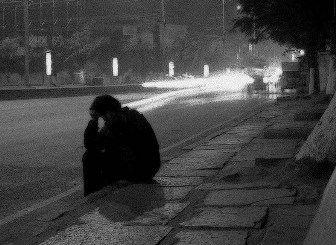COMPELLING TRUTH
The Worst Friday Night Ever
By Robin Schumacher


Single page/printer friendly

January has not been a good month.
A few weeks ago, on a Friday night, I traveled about an hour away to attend the visitation for my friend's granddaughter who died of a brain tumor. She was only nine.
The next day, I traveled in the opposite direction to visit a wonderful couple I know. The husband (early fifties) was in the final stages of liver cancer. He died the following week and I spoke at his funeral. They had only been married a few years.
About a week later, I got the word that a magnificent woman (early 40's) in our church had succumbed to lung cancer. She is a well-known Bible teacher, conference speaker, writer, and has worked tirelessly to help struggling couples rebuild their marriages. She left behind a loving pastor husband and four teenage children. If ever there was a case of putting to rest the false teaching that you only have to exhibit strong faith for God to heal you, this was it.
These losses devastated each family and were particularly difficult on me for two reasons. First, my family had been praying for a long time that God would graciously heal each of them, but in a matter of weeks all were gone.
Second, it opened some old personal wounds for me. Many years ago I watched my wife die very young of cancer leaving me alone to raise our baby daughter, so I knew full well what each husband, wife, and parent was feeling.
What Would It Take?
When I debate atheists and skeptics on the topic of Christianity, I always ask them the question: what would it take for you to believe in Christ? Because of that, they will sometimes (quite fairly, I might add) ask me this in return: what would it take for you to disbelieve?The short answer is the same one Paul gives in 1 Corinthians 15. If Jesus wasn't raised from the dead, our faith is worthless (1 Cor. 15:14). Ergo, if the Nazarene carpenter's body is ever unearthed, I would be forced to discard my Christian faith and pursue something else.
But I would be lying to you if I didn't admit that months like January distress me and cause me difficulty. They don't cause me to doubt God's existence, but rather the struggle is an existential one of reconciling God's goodness with the seemingly random, meaningless tragedies that visit people. Watching wonderful people die young while Hugh Hefner dances with playboy bunnies into his eighties is rather puzzling and brings to mind David's lament: "I envied the arrogant when I saw the prosperity of the wicked. They have no struggles; their bodies are healthy and strong. They are free from the burdens common to man; they are not plagued by human ills. . . .This is what the wicked are like — always carefree" (Psalm 73:3-5, 12).
Of course, this is the age-old wrestling match of theodicy and something endlessly debated by theologians as well as both Christian and secular philosophers such as Plantinga, Hume, Mill, and many others. On this topic, I've both written and delivered theological papers [1] and presentations [2] for the intellectual problem of evil/God and know how to present convincing arguments very well in defense of Christianity's position on the subject.
So, to me, the intellectual problem of evil isn't that difficult to overcome. In fact, Peter Van Inwagen says, "It used to be widely held that evil was incompatible with the existence of God: that no possible world contained both God and evil. So far as I am able tell, this thesis is no longer defended." [3]
But let's be honest: the emotional problem of evil is a tough one to endure, especially when it personally touches you on the shoulder. Emotionally we struggle to connect the dots with a Creator who claims to be a loving Father of mercy (2 Corinthians 1:3) and apparent heartless episodes of suffering and grief that befall those He claims to care about (1 Peter 5:7).
In such situations, we look Heavenward and either loudly or under or breath (depending on how brazen we feel at the moment) utter a complaint similar to Habakkuk's: "How long, O LORD, will I call for help, and You will not hear? I cry out to You, 'Violence!' yet You do not save" (Hab. 1:2).
When I feel overcome by watching evil takes its toll on good people and find myself nodding in agreement with Habakkuk, I solidify the ground under my shifting feet by remembering what had to be the worst Friday night ever.

Continue to page 2
1. http://tinyurl.com/mna3blz.
2. http://tinyurl.com/n6uxn5l.
3. Peter Van Inwagen, "The Problem of Evil, the Problem of Air, and the Problem of Silence, Philosophical Perspectives, vol. 5: Philosophy of Religion, ed. James E. Tomberlin (Atascadero, CA: Ridgeview Publishing, 1991),pg. 135.
Image credit: Gabe Imagerie; Some rights reserved
comments powered by Disqus
Published 2-3-14

